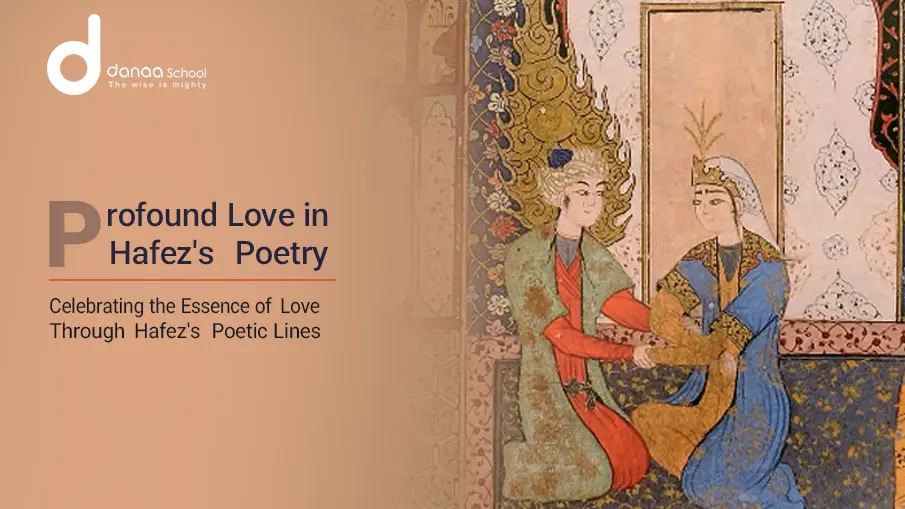Regarding Persian poetry, Hafez stands out as a beacon of cultural and literary heritage. His poems, known for their profound spirituality and lyrical beauty, have transcended time and language barriers. Let’s journey through Hafez poems in Farsi and English and discover how these masterpieces continue to bridge cultures and captivate hearts.
Hafez Poems in Farsi and English Translation
Hafez, born in Shiraz in the 14th century, is celebrated for his collection of poems known as the Divan of Hafez. This collection, composed primarily of ghazals, reflects his deep spiritual insight and mastery of the Persian language.
Reading Hafez’s poems in their original Farsi offers an unmatched experience, capturing his words’ rhythm, nuance, and emotion. However, English translations of Hafez’s poems have made his work accessible to a global audience, allowing more people to appreciate the depth and beauty of his poetry.
The Art of Hafez Poems English Translation
Translating Hafez’s poetry into English is no small feat. The rich metaphors, cultural references, and intricate wordplay present significant challenges. Yet, many scholars and poets have taken on this task, striving to convey the essence of Hafez’s work to English-speaking readers. Notable among these efforts is the Divan Hafez English translation, which seeks to preserve the poetic structure and mystical themes of the original ghazals.
Sir William Jones and the Influence of English Translations
Sir William Jones was one of the earliest and most influential figures in the translation of Persian poetry into English. An 18th-century philologist and orientalist, Jones’s translations were crucial in introducing Persian literature to the Western world. His work not only provided English-speaking audiences with a glimpse into the world of Persian poetry but also inspired future generations of translators and poets.
The Mystical Themes in Hafez’s Poetry
Hafez’s poems delve into themes of love, spirituality, and the human condition. His ghazals often reflect a deep longing for union with the divine, exploring the earthly and heavenly relationship. This spiritual quest resonates with readers across cultures and eras, making Hafez’s poetry timeless and universal.
What is Hafez poetry? Learn more
The Importance of Persian Ghazal
The ghazal, a poetic form consisting of rhyming couplets and a refrain, is central to Persian literature. Hafez’s mastery of the ghazal has set a high standard for poets who followed. His ability to infuse this traditional form with profound meaning and emotion has cemented his status as one of the greatest Persian poets.
Preserving Persian Poetry Through Translation
Translating Persian poetry into English introduces new audiences to the beauty of this literary tradition and helps preserve it. Each translation bridges different cultures and allows for a deeper understanding of the Persian poetic heritage. The ongoing efforts to translate Hafez’s poems ensure that his legacy inspires and enlightens readers worldwide.
Join Danaa School’s Persian Poetry Courses
For those captivated by Hafez’s poetry and eager to delve deeper into Persian literature, Danaa School offers comprehensive Persian poetry courses. These courses provide an in-depth exploration of Persian poets, including Hafez, and offer insights into the art of poetry translation. By joining these courses, you can deepen your appreciation of Persian poetry and contribute to preserving this rich cultural heritage.
FAQs
What poems are from the Divan of Hafez?
The Divan of Hafez is a collection of Hafez’s ghazals, which are lyric poems that explore themes of love, mysticism, and the divine. Some of the most famous poems from this collection include “The Cup of Jamshid” and “The Divan of Hafez.”
Is Hafez the same as Rumi?
While Hafez and Rumi are renowned Persian poets, they are distinct individuals with unique styles and themes. Rumi’s work often focuses on mystical love and the human connection to the divine. At the same time, Hafez’s poetry is known for its intricate wordplay and exploration of spiritual themes.
Is it Hafiz or Hafez?
“Hafiz” and “Hafez” are correct spellings of the poet’s name. “Hafez” is closer to the original Persian pronunciation, while “Hafiz” is an anglicized version commonly used in English texts.
What did Hafez write about?
Hafez wrote primarily about love, spirituality, and the human condition. His poems often reflect a longing for union with the divine and explore the interplay between earthly and heavenly love.
What is the meaning of Divan Hafez?
The Divan of Hafez refers to the collection of Hafez’s poems, specifically his ghazals. The term “Divan” denotes a compilation or anthology of poetry, and the Divan of Hafez is one of the most celebrated works in Persian literature.
Conclusion
Hafez’s poetry, with its profound themes and lyrical beauty, continues to captivate readers worldwide. Through English translations, his ghazals’ mystical and emotional depth is accessible to a broader audience, fostering a deeper appreciation for Persian literature. By exploring Hafez’s poems and engaging with courses like those offered by Danaa School, you can immerse yourself in the rich tradition of Persian poetry and experience the timeless wisdom of one of its greatest masters.










